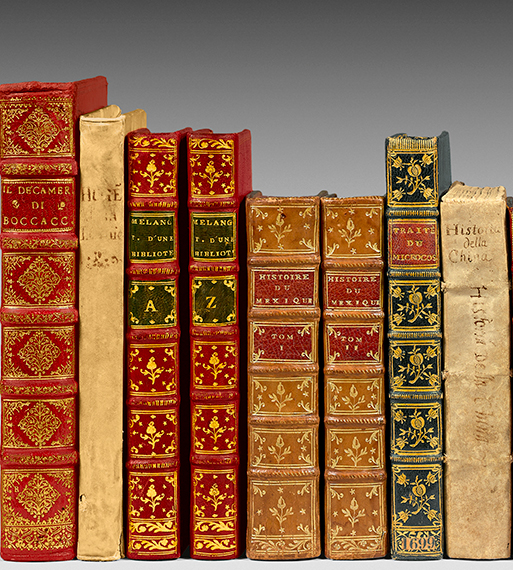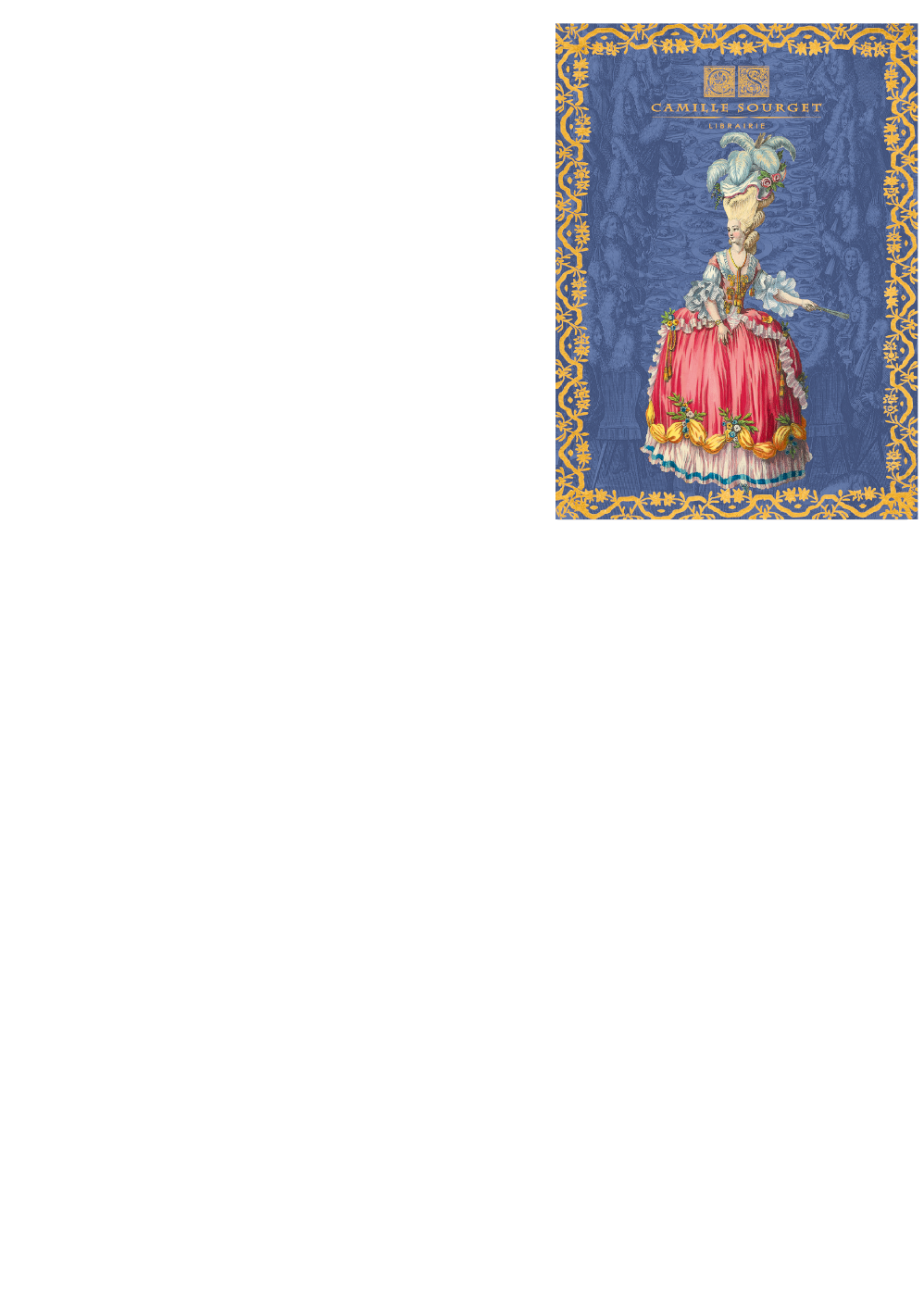‘Exquisite for connoisseurs, original and essential among the other productions of the author,
le the collection of ‘Autumn Leaves’ is also in perfect harmony with this century
de of confused renovation’ wrote Sainte-Beuve.
Hugo, Victor. Lthe autumn leaves.
Paris, Eugène Renduel, 1832.
In-8 of (2) ff. of half-title and title, xiii pp. including a frontispiece, (1) f. (second half-title), 387 pp., (2) ff. of table. Some foxing. Bound in half fawn calf, smooth spine decorated with a large gilt roller at head and foot as well as numerous gilt and blind-stamped fillets, aubergine calf title and volume pieces, speckled edges. Binding of the period signed Thouvenin.
204 x 127 mm.
Rare first edition “printed in only 500 copies” (Clouzot, 145).
Carteret, I, 403; Vicaire, IV, 272.
“Rare without edition mention” notes Clouzot.
““A few very rare copies were printed on large paper, the number of which is unknown… A key work among the poems of Victor Hugo, very rare, in beautiful condition.” (Carteret).
“Collection of poems by Victor Hugo preceding ‘Songs of Twilight’ and ‘Rays and Shadows’. The character of this collection seems to be defined by the author himself in his preface: ‘Fallen leaves, dead leaves, like all autumn leaves. This is not poetry of tumult and noise; these are secret and peaceful verses, verses like those everyone makes or dreams about, verses of the family, of the home, of private life; verses from the interior of the soul. It is a melancholic and resigned glance, cast here and there at what is, especially at what has been. It is the echo of those thoughts, often inexpressible, that are confusedly awakened in our minds by the thousand objects of creation that suffer or languish around us: a dying flower, a falling star, a setting sun, a roofless church, a grass-filled street […]’. Never has Victor Hugo been happier in expression, more tender and truthful than when he speaks of his childhood. The graces, the children’s games, the regrets, the family affections, have never been sung by this poet with such poignancy […] These verses are from 1830; Victor Hugo was therefore 28 years old when he wrote them. He must have already delved to the depths of everything to bring back before time these bitter fruits! Thus, this exceptionally tempered soul could not settle, despite the confessions of the preface, for poetry of a purely intimate character. [….] In a word, his extraordinary talents as a painter, his need for the grandiose, for the epic can only freely express themselves if he bestows upon the smallest memories and circumstances of his life an heroic character, an exemplary significance […] Thus to Lamartine’s soft and tender voice responds this ardent and hoarse voice: the legitimist of 1820 is preparing to become the bard of great historical upheavals, the poet of the tragedy of peoples. Thus this ‘peaceful’ collection concludes with an apocalyptic vision of Europe still trembling under tyranny and preparing for revolt. Sainte-Beuve thus judged ‘The Autumn Leaves’: ‘Exquisite for connoisseurs, original and essential among the other productions of the author, the collection of ‘The Autumn Leaves’ is also in perfect harmony with this century of confused renovation’. The style, the rhythm, have attained their perfection. The poet has surpassed himself in ease and naturalness. Among the now famous poems one must cite ‘Prayer for All’, containing pages of rare beauty […]” (Dictionnaire des Œuvres, III, pp. 89-90).
A very beautiful copy preserved in its elegant signed period binding, a most rare condition for this sought-after original.

